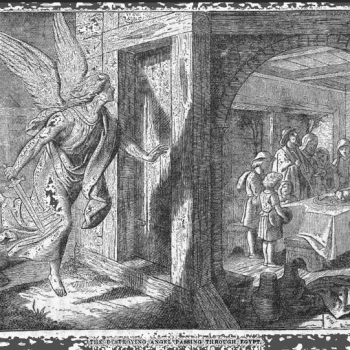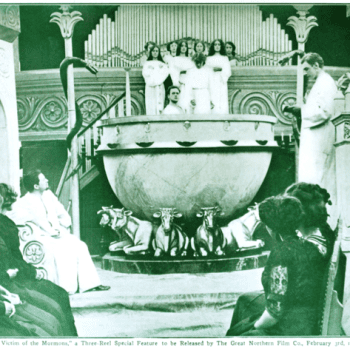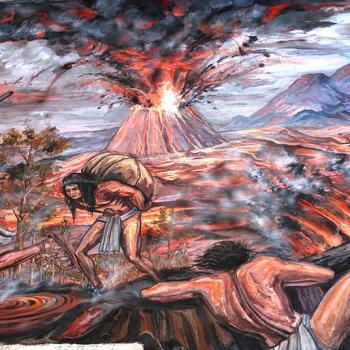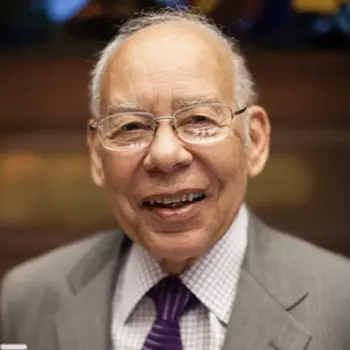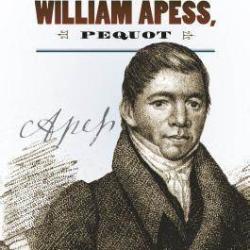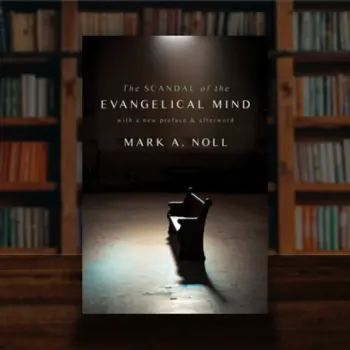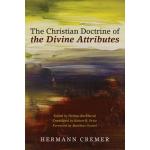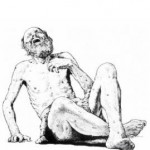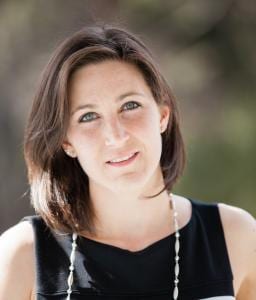 I’m pleased to welcome Lauren Turek to the Anxious Bench. Lauren is an assistant professor of history at Trinity University in San Antonio, Texas, where she teaches courses on modern United States history, U.S. foreign relations, and public history and serves as the director of the museum studies minor. This interview is about her new book, just out with Cornell University Press, entitled To Bring the Good News to All Nations: Evangelical Influence on Human Rights and U.S. Foreign Relations.
I’m pleased to welcome Lauren Turek to the Anxious Bench. Lauren is an assistant professor of history at Trinity University in San Antonio, Texas, where she teaches courses on modern United States history, U.S. foreign relations, and public history and serves as the director of the museum studies minor. This interview is about her new book, just out with Cornell University Press, entitled To Bring the Good News to All Nations: Evangelical Influence on Human Rights and U.S. Foreign Relations.
***
David: Congratulations on your new book! Tell us about it.
Lauren: To Bring the Good News to All Nations tells the story of how and why politically-conservative evangelical groups in the United States became an influential lobbying force on issues related to U.S. foreign relations, especially human rights and religious freedom, starting in the 1970s. The book is composed of chronologically overlapping chapters that work together to explain the spiritual and ideological beliefs that motivated foreign policy activism, the manner in which evangelicals became effective foreign policy advocates, and regional examples of how the lobby worked to shape policy. It begins by discussing the evangelical commitment to world evangelization, a goal that decolonization, Cold War conflict, and globalization complicated. I discuss major initiatives by evangelical groups, such as the Billy Graham Evangelistic Association and the International Congress on World Evangelization, which refocused evangelical attention on overseas missionary work while simultaneously developing a greater sense of interconnectedness among evangelicals from different countries. Overseas missionary work, new technologies and communications networks, and a sense of belonging to a transnational community of believers exposed evangelicals to foreign policy issues abroad, gave them a means to share information across borders, and kept them focused on the needs and challenges that their brethren faced in other countries.
![]()
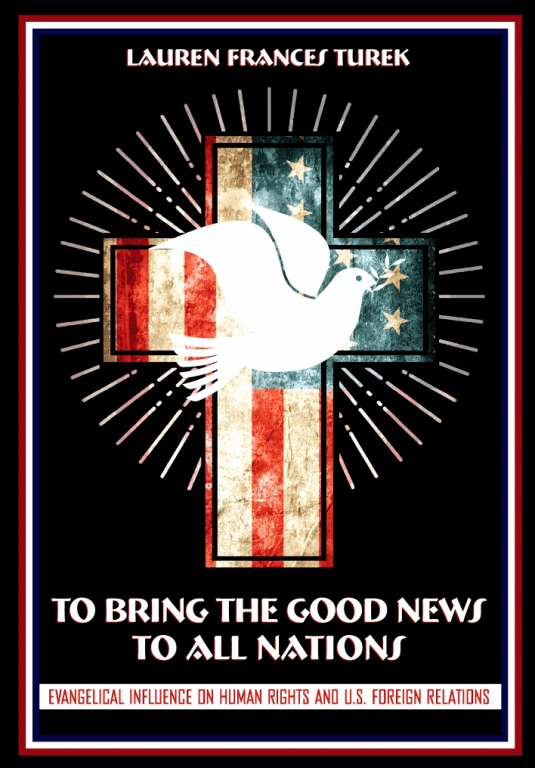 As conservative evangelicals gained more political power during the 1970s, they were better able to use that influence to shape foreign policy. Their missionary work and networking gave them direct insight into religious persecution and state violence abroad. Evangelicals began lobbying Congress to impose economic and diplomatic sanctions on those countries that persecuted Christians, such as the Soviet Union. Similarly, when evangelicals identified anti-communist or pro-evangelical leaders in other parts of the world, they pushed the United States to implement policies that would benefit those regimes—even when they were extremely authoritarian and repressive, such as in Guatemala. I discovered that they often used human rights language to frame their advocacy. They had a narrow and particularistic conception of human rights. For the groups I studied, the freedom of religion or freedom of conscience was the primary human right and this view was rooted in the evangelical commitment to achieving the Great Commission. Believing that it was their spiritual duty to spread the Christian gospel, these evangelical groups wanted a foreign policy that would protect their freedom to evangelize (and the freedom of the “unreached” to hear that gospel). For them, no earthly privation compared to the loss of the potential for eternal salvation, and as such they advocated primarily for religious liberty rather than for the more expansive human rights that secular and politically-liberal organizations such as Amnesty International promoted. One of the core arguments of the book is that in so doing, they defined a conservative human rights vision that proved influential in shaping U.S. human rights policies during the Reagan years and beyond.
As conservative evangelicals gained more political power during the 1970s, they were better able to use that influence to shape foreign policy. Their missionary work and networking gave them direct insight into religious persecution and state violence abroad. Evangelicals began lobbying Congress to impose economic and diplomatic sanctions on those countries that persecuted Christians, such as the Soviet Union. Similarly, when evangelicals identified anti-communist or pro-evangelical leaders in other parts of the world, they pushed the United States to implement policies that would benefit those regimes—even when they were extremely authoritarian and repressive, such as in Guatemala. I discovered that they often used human rights language to frame their advocacy. They had a narrow and particularistic conception of human rights. For the groups I studied, the freedom of religion or freedom of conscience was the primary human right and this view was rooted in the evangelical commitment to achieving the Great Commission. Believing that it was their spiritual duty to spread the Christian gospel, these evangelical groups wanted a foreign policy that would protect their freedom to evangelize (and the freedom of the “unreached” to hear that gospel). For them, no earthly privation compared to the loss of the potential for eternal salvation, and as such they advocated primarily for religious liberty rather than for the more expansive human rights that secular and politically-liberal organizations such as Amnesty International promoted. One of the core arguments of the book is that in so doing, they defined a conservative human rights vision that proved influential in shaping U.S. human rights policies during the Reagan years and beyond.
David: You aren’t the first to write in what has become a burgeoning field on evangelicals and politics. What does this book add to older scholarship?
Lauren: I think the book adds to our scholarship on evangelicalism and politics—as well as to the diplomatic history scholarship—in a few ways. For example, rather than focusing on hot button domestic political issues, the book places the rise of the religious right in the United States in a global context. Evangelicals viewed themselves as members of a transnational community of believers, and I argue that this identity provided the foundation for their foreign policy activism. Secondly, the book illuminates how Christian interest groups blended their religious beliefs and conservative political ideology to drive national discourse about U.S. foreign relations. Evangelical lobbying influenced official decision-making on vital issues, including foreign military aid, trade, and diplomatic negotiations. Thirdly, the book contributes to the growing literature on human rights in the 1970s by demonstrating that evangelical lobbyists used human rights language to influence how policymakers interpreted state violence and repression abroad. In foregrounding non-state actors, the book explores the intersections between ideology, religious identity, public opinion, and policy outcomes, while paying close attention to the process of U.S. policymaking. This focus distinguishes it from other works on religion and foreign policy as well as from other scholarship on evangelical internationalism.
David: You begin your book by quoting from the Lausanne Covenant (1974): “We, therefore, pray for the leaders of the nations and call upon them to guarantee freedom of thought and conscience, and freedom to practice and propagate religion in accordance with the will of God and as set forth in The Universal Declaration of Human Rights.” Was it typical in the 1970s for evangelicals to invoke the will of God and the United Nations in the very same sentence?
Lauren: I think it was because it struck me as somewhat unusual to see that reference in a text like the Lausanne Covenant that I felt compelled to include it as the epigraph for the introduction. To me, that mention of the UN Declaration on Human Rights speaks to the intentionality of the use of human rights language. In addition to drawing on Genesis and scriptural references to the imago dei and human dignity, the groups in the book actively and intentionally used the language of human rights that had, by the late 1970s, gained such power and salience with Congress and the international community.
David: How big of a factor was anticommunism in the evangelical embrace of human rights language?
Lauren: Communism was definitely important. Often when we read about evangelical anti-communism during the Cold War, we see the usual references to atheistic or Godless communism, to Christian Nationalist defenses of the U.S. way of life, and to the nationalist desire to triumph in the superpower conflict. And I certainly came across a lot of that. But I found the framing of anti-communism through human rights language especially interesting. In my research, I read congressional testimony and statements of advocacy that called on the U.S. government to put policies in place that would promote religious liberty, so that evangelicals could evangelize in what were then closed communist societies—but also so that Christians living in closed societies could practice their faith freely and evangelize in their own countries. Evangelicals who testified before Congress often included reports from or about underground Christians in communist states, many of whom did not necessarily want to leave their home countries to emigrate to the West, but who did want the freedom to teach their children their faith or to preach openly. U.S. evangelical activists tended to push for policies that would punish the communist nations that restricted religious practice and reward those that eased restrictions. By calling communist countries that restricted religious liberties the “worst human rights offenders,” evangelical activists were able to define “human rights” narrowly and emphasize religious freedom. Human rights language helped them gain bipartisan congressional support for the policies they wanted to see implemented when dealing with communist countries. Then they were at the table so to speak later on when other human rights issues emerged, and they marshaled that same human rights language to advocate for policies to support anti-communist and authoritarian leaders in other parts of the world (though they of course did not get bipartisan support for those policies and faced considerable congressional resistance).
David: Were evangelical lobbying efforts in favor of human rights primarily self-interested (wanting to preserve space in foreign countries to evangelize) or disinterested (wanting, out of principle, to preserve freedom of conscience for peoples around the world)?
Lauren: I think they would have said it was disinterested, in that they believed that by ensuring religious freedom/the freedom to evangelize, they were allowing people to hear the Gospel and be saved. They believed they were bringing the unreached the ultimate freedom of salvation in Christ and they did not seem to see that as self-interested. We might disagree of course, particularly given the religious chauvinism that comes through in the documents; from a personal perspective, it seems self-interested to me. It is telling that they were seeking the preservation of religious of freedom in an instrumental way, to hasten evangelism, and they did not make that goal a secret.
David: Where in the world did evangelicals have the most influence on foreign policy?
Lauren: From what I found, they were most successful in terms of shaping congressional opinion in policies toward the Soviet bloc. Members of Congress referenced their testimony when pushing for trade restrictions with the Soviet Union, Romania, and other communist countries. They proved influential on the ground in parts of Central America, particularly in Guatemala, where they had a close relationship with the evangelical dictator Ríos Montt and played a direct role in funding and supporting his internal anti-communist policies.
David: Who is the most complicated character in your book?
Lauren: Perhaps the most complicated folks in the book were the evangelical activists who supported Ríos Montt in Guatemala, claiming he would bring human rights to his country even as he committed a genocide against the indigenous Mayan citizens.
David: What archives did you most enjoy visiting as you researched?
Lauren: I was so fortunate in terms of archives. I had an amazing experience at the Centro de Investigaciones Regionales de Mesoamérica in Guatemala; the archivists there were beyond helpful and the archive itself was spectacularly beautiful, with a huge inner courtyard filled with flowers, a fountain, and ducks. Walking in every day was a dream. Working at the National Archives in South Africa was incredibly exciting, as they had so much material that was uninventoried that they kindly pulled for me to look through that I felt like I was on a treasure hunt every day. Of course, I cannot fail to mention the Billy Graham Center Archives or the Buswell Special Collections Library at Wheaton College, which may be the most pleasant and welcoming of any archive I’ve ever been to. The staff there really helped me orient my research, find interesting collections I might not have known to look into, and to find pictures for the book. I spent more time there than anywhere else, and I am sad that I probably won’t be going back for a while since my next project is not so focused on religion. I visited many other religious archives, as well as the Nixon, Ford, Carter, and Reagan Presidential Libraries, the Library of Congress, and the National Archives, and in all of these repositories I was incredibly lucky to work with so many helpful and kind archivists.

David: What led you to this topic as a research subject?
Lauren: My primary scholarly interest is in exploring the intersections between domestic politics and U.S. foreign policy. When I was in graduate school, I wrote my MA thesis on domestic opposition to Nixon’s policy of détente with the Soviet Union. As I was writing the thesis, I kept coming across anti-détente material from conservative Christians making human rights-based arguments, and I found that fascinating. Most of what I had read about evangelicals and the religious right at that point was on domestic political issues, or, if it pertained at all to foreign policy, it was about evangelicals and Israel. So evangelical foreign policy activism seemed like it might have the makings for a good dissertation topic (and then later a book topic). I was also fortunate to take a class in the religion department on Pentecostalism from the wonderful Dr. Valerie Cooper, who was then at the University of Virginia (she is now at Duke). Thinking deeply about how global evangelicalism and Pentecostalism began to change in the 1960s and 1970s, how the locus of Christianity began to shift into the Global South, allowed me to make connections between these religious movements and the foreign policy issues I was most interested in as a scholar of diplomatic history. So the topic came serendipitously, but I have very much enjoyed delving into it.
David: What is the most difficult and/or enjoyable part of writing for you?
Lauren: For me, the most challenging part is always getting the introduction of a piece written. Like many people, writing is the means by which I think through and process my evidence. But I also need something down on paper to get started—I have never been successful at just starting somewhere in the middle of a piece or writing stream of consciousness and then editing it into something sensible. I like to edit and polish as I go. So the introduction is always a struggle. But once I am in the body of a piece, and I am working through the primary sources and building my argument, then I love writing. That is where I make connections, notice interesting trends, and find those surprising moments that make the story so interesting to tell. Immersing myself in the documents is my absolute favorite part of writing.




